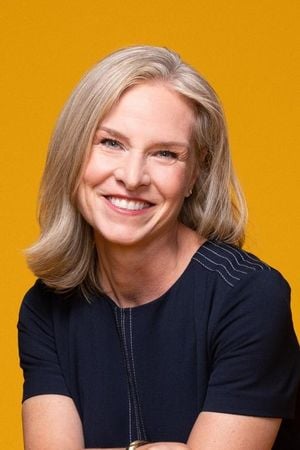On October 13, 2025, a moment long awaited by families on both sides of a bitter conflict finally arrived: Israel and Hamas began releasing the hostages they had held captive for over two years. The exchange, part of the first phase of an emerging peace plan, was marked by scenes of unbridled joy and profound relief, not only in the Middle East but also in communities half a world away. In New York City, home to the largest Jewish population outside the Middle East, the news landed with a complex mix of celebration, grief, and reflection, as reported by The New York Times.
In Gaza and Israel, the release sparked spontaneous reunions. Families and neighbors gathered to embrace their loved ones, dancing, shouting, hugging, and weeping in scenes that defied easy description. As one observer wrote, "the unbridled joy over the release of the hostages on both sides is truly beyond description." Yet, the emotional impact was not limited to the hostages and their families. The act of release itself provided a moment of liberation for the captors as well. "The hostage keepers were hostages too," the writer reflected, noting that the burden of captivity weighs heavily on both sides. When the hostages were set free, so too were those who had held them, each able to return to their former lives and shed the crushing physical and emotional weight of their roles.
For many, the word "release" took on new meaning. It became not only a political and humanitarian milestone but also a spiritual and personal metaphor. The writer, recalling a personal experience from seminary, drew parallels between the act of releasing a grudge and the act of setting a hostage free. "To forgive is to release," the author observed, noting that forgiveness is not just a gift to the one who has wronged you, but also a gift to yourself—a way to unburden one's own spirit and move forward.
In New York, the week marking the return of Israeli hostages and the truce in Gaza was filled with gatherings and rituals that blended celebration and mourning. Charly Jaffe, a 35-year-old creative director, hosted friends in Brooklyn for a meal of hummus, labneh, and fried halloumi from a local Israeli restaurant. They toasted "l'chaim"—to life—with arak, honoring both those saved and those lost, Israeli and Palestinian alike. "It feels like a very Jewish thing," Jaffe said, "to have celebration and grief all at once." According to The New York Times, this duality has defined the experience for many Jewish New Yorkers, whose ties to Israel are cultural, religious, and deeply personal.
The war in Gaza, which began on October 7, 2023, with a Hamas-led attack that killed about 1,200 people and kidnapped 250, has left indelible marks. Israel's military retaliation resulted in an estimated 67,000 deaths in Gaza, including both civilians and combatants, and parts of Gaza experienced famine, according to authorities and international monitors. The violence and its aftermath have reverberated through New York's Jewish communities, deepening some people's faith and connection to tradition while horrifying others with the conduct of the war. As The New York Times notes, many have become newly politicized, often in opposing directions, leading to rifts among friends and even within families.
Audrey Sasson, executive director of Jews for Racial & Economic Justice, described finding refuge in her leftist Jewish community and feeling encouraged by more Jews speaking out against what she calls "a genocide" in Gaza. "It was incredibly painful to watch our history, our symbols, our traditions be exploited for the atrocities that the Jewish state, that Israel was committing," Sasson said. She added, "I really do think there’s a shift happening in our community. I think people who were uncomfortable speaking out a few years ago are organizing today in a way they didn’t before and willing to say things out loud that they weren’t willing to say before."
For others, the events since October 7 have reinforced their public support for Israel. David Kleinhandler, a Manhattan real estate executive, began wearing a Yankees cap adorned with the Israeli flag and, until the last hostages were released on October 20, sported a yellow pin or a hostage dog-tag necklace. "I have had these wonderful moments of Jewish peoplehood," he said, describing interactions with strangers who thanked him for his visible support.
Yet, the past two years have also been marked by a surge in antisemitism in New York, with many Jews feeling less safe in their own city. Leon Goldenberg, who was in Israel during the October 7 attacks and returned to New York for the Jewish holidays, said, "the war coming to an end is not going to end what’s going on in New York, and the antisemitism that is felt." He recounted how his teenage grandson was recently pushed to the ground by a group of men, adding, "It’s not anti-Zionism—it’s antisemitism. That’s how we feel, and that’s how it is." Monica Jacobson, a retired lawyer, echoed these concerns, saying, "If you stand with the state of Israel, even if you do not support Netanyahu’s government, you are treated as if you are complicit in his policies. You are not allowed to have a nuanced position."
Amid the turmoil, some voices have called for a broader perspective. Margo Hughes-Robinson, an ordained rabbi and advocacy group leader, insisted, "The emergency is in Gaza, it is not in New York." Meanwhile, the war and the hostage release have become flashpoints in local politics, particularly as New York's mayoral race heats up. Marcy Drogin, a lifelong Democrat, expressed frustration with the Democratic nominee Zohran Mamdani, criticizing his rhetoric about Israel and his delayed acknowledgment of the hostage release. In contrast, social worker Sarah Perlmeter argued that supporting Palestinian liberation is an assertion of Judaism’s core values, saying, "To me Zohran represents all this."
For others, the experience has led to renewed appreciation for Jewish tradition and community. Rabbi Ellen Lippmann, founder of one of Brooklyn’s most progressive congregations, said, "What has gained strength in this time is probably a new appreciation for Judaism, for the prayers and the teachings and the rituals, and the wisdom accumulated over thousands of years. The flowering here of all of that is gorgeous." Shira Kramer, a senior at Yeshiva University, noted that some Jewish students are choosing to attend Yeshiva over Ivy League schools to find a sense of safety and belonging amid rising antisemitism.
As the dust settles, uncertainty remains. "I think we want an end, desperately, desperately, but it’s not just because a deal is made, and just because the hostages are released," said Kramer. "That’s not the end. I don’t know what the end looks like, but I’m not sure it’s coming anytime soon." Lyel Resner, an educator and volunteer with a group that brings Israeli and Palestinian teenagers together, urged Americans to move beyond a binary view of the conflict. "The last two years have demonstrated to me how deeply intertwined everyone’s well-being truly is," he said. "When I see 17-year-olds do it, well, I just wish everyone else had their moral imagination."
As New Yorkers and people around the world grapple with the aftermath of the hostage releases, the word "release" resonates on many levels—political, personal, and spiritual. It is a reminder that liberation, forgiveness, and the willingness to let go can be as transformative for those who hold on as for those who are held.




